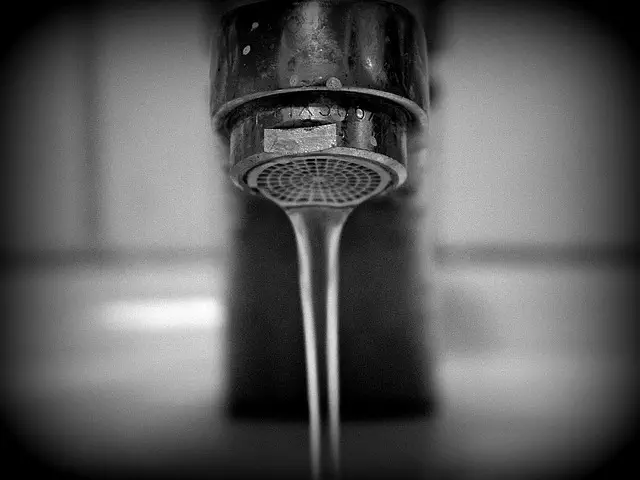Plumbing permits are mandatory in Toledo for any plumbing project, ensuring compliance with local building codes and health standards. These permits prevent hazards and guarantee installations meet regional plumbing code requirements, including materials, ventilation, waste disposal, and water supply systems. Understanding and obtaining these permits is crucial for residential and commercial properties, navigating stringent city regulations to safeguard residents and maintain a safe plumbing infrastructure. Common mistakes in the application process can delay or deny permits, emphasizing the importance of thoroughly understanding specific regulations and accurately defining project scope.
In every city, plumbing plays a vital role in maintaining health and safety standards. For Toledo residents and businesses, understanding Plumbing Toledo regulations is crucial. This comprehensive guide delves into the intricacies of plumbing permits and codes, equipping you with essential knowledge to ensure compliance. From plumbing services to the application process, we’ll explore who needs a permit, common mistakes to avoid, and how to stay updated on changing plumbing regulations. By understanding these rules, you can navigate plumbing installation projects smoothly and avoid potential penalties.
- Understanding Plumbing Permits: Why They Are Essential
- Navigating Toledo's Plumbing Codes: A Comprehensive Guide
- Who Needs a Plumbing Permit? Unraveling the Eligibility Criteria
- The Process of Obtaining a Plumbing Installation Permit
- Common Mistakes to Avoid During Plumbing Permit Application
- Plumbing Services and Their Role in Compliance
- Staying Updated: Changes in Plumbing Regulations in Toledo
Understanding Plumbing Permits: Why They Are Essential
Plumbing permits are crucial for any plumbing project in Toledo or any other location. They serve as official documentation that a property owner or contractor has met specific standards and regulations set by local building codes. These permits ensure that plumbing installations are safe, efficient, and meet health and safety requirements. Without them, any plumbing work could be considered illegal and may lead to severe penalties.
For plumbing services and installations, understanding the importance of these permits is vital. They protect homeowners and tenants by guaranteeing that the work is up to code, preventing potential hazards like leaks, clogs, or worse. Plumbing codes vary across regions, but they generally cover aspects such as pipe materials, ventilation, waste disposal, and water supply systems. By obtaining the necessary permits, plumbing professionals can ensure their work aligns with these regulations, providing long-lasting and reliable services for both residential and commercial properties.
Navigating Toledo's Plumbing Codes: A Comprehensive Guide
Navigating Toledo’s plumbing codes is essential for anyone planning plumbing services or installations. The city has stringent regulations in place to ensure safe and efficient water systems, protecting both residents and properties. These codes cover various aspects, from pipe materials and sizes to specific installation methods and maintenance requirements. Understanding these rules is crucial before starting any plumbing work.
For plumbing installation projects, you’ll need to familiarize yourself with the permitted materials and techniques outlined in Toledo’s building and health department guidelines. This includes understanding water supply and drainage systems, as well as gas lines if your project involves them. Permits are required for most significant alterations or new installations, ensuring compliance with safety standards. By adhering to these codes, you not only avoid potential fines but also contribute to maintaining a safe and reliable plumbing infrastructure in Toledo.
Who Needs a Plumbing Permit? Unraveling the Eligibility Criteria
In the realm of plumbing services and installations, understanding when a plumbing permit is required is crucial for both professionals and homeowners in Plumbing Toledo. Not every plumbing project necessitates a permit, but navigating the eligibility criteria can be intricate. Typically, permits are mandatory for significant alterations, new constructions, or projects involving complex plumbing systems. This includes extensive renovations, such as kitchen or bathroom remodels, that impact existing plumbing layouts.
Eligibility is often determined by the scope and nature of the work. For instance, simple plumbing installations like replacing a faucet or unblocking drains usually don’t require permits. However, major projects like installing new water heaters, gas lines, or entire plumbing systems for new additions demand permits to ensure compliance with local building codes and safety standards. Plumbing professionals in Toledo should stay informed about these regulations to offer seamless services while adhering to legal requirements.
The Process of Obtaining a Plumbing Installation Permit
When embarking on a plumbing installation project in Toledo, obtaining the necessary permits is a crucial step to ensure compliance with local regulations and avoid any legal complications. The process typically begins by submitting an application to the relevant building department or municipal authority. This application will require detailed information about your plumbing installation, including plans, specifications, and the scope of work. It’s essential to provide accurate and comprehensive documentation to streamline the approval process.
Once your application is approved, you’ll be issued a Plumbing Installation Permit, which allows you to legally proceed with your project. The permit acts as a testament to your compliance with local plumbing codes and building standards. Throughout the installation process, it’s crucial to adhere to these guidelines, ensuring the safety and functionality of your plumbing system. For any plumbing services in Toledo, professionals must follow these regulations, guaranteeing a seamless and compliant construction journey.
Common Mistakes to Avoid During Plumbing Permit Application
Applying for a plumbing permit can be a straightforward process, but mistakes can often delay your project or even lead to permit denial. Here are some common blunders to steer clear of when navigating the Plumbing Toledo codes and application process:
One frequent error is failing to understand the scope of work required for a particular permit. Every plumbing installation or service has specific regulations attached, and it’s crucial to accurately define your project. For instance, what seems like a simple faucet replacement might still need a permit if it involves moving pipes or altering existing fixtures. Always double-check with local building authorities in Toledo to ensure you’re meeting all necessary requirements. Another mistake is submitting incomplete or inaccurate application forms. Provide detailed descriptions of the work, include relevant plans or specifications, and verify that all required documents are attached to avoid delays caused by administrative issues.
Plumbing Services and Their Role in Compliance
Plumbing services play a pivotal role in ensuring compliance with local building codes and regulations, especially in cities like Toledo. These professionals are tasked with installing, repairing, and maintaining plumbing systems within residential, commercial, and industrial properties. They possess the knowledge and skills to understand complex codes related to water supply, drainage, and waste disposal, ensuring that every pipe, fixture, and appliance is installed correctly and safely.
When undertaking any Plumbing Installation in Toledo or beyond, professionals must adhere to specific guidelines to protect public health and safety. This includes proper waste removal, water treatment, and temperature regulation, as well as compliance with local environmental standards. Plumbing services are not just about fixing leaks; they are integral to creating efficient, sustainable, and code-compliant plumbing infrastructures that serve communities and businesses effectively.
Staying Updated: Changes in Plumbing Regulations in Toledo
Staying Updated is Crucial for Plumbing Services in Toledo
The plumbing landscape in Toledo, like many cities, is constantly evolving with updates to local regulations and building codes. These changes are designed to enhance safety standards and ensure that modern plumbing installations meet the latest efficiency and sustainability criteria. Plumbers and those seeking plumbing services must stay informed about these developments to comply with legal requirements and deliver high-quality work.
Regularly reviewing Toledo’s building codes and regulations is essential for anyone involved in plumbing installation or maintenance. From new material specifications to updated venting requirements, these changes can impact the way plumbing systems are designed and installed. Staying current enables plumbing professionals to offer the best solutions, ensuring that homes and businesses in Toledo have efficient, safe, and compliant plumbing systems.


